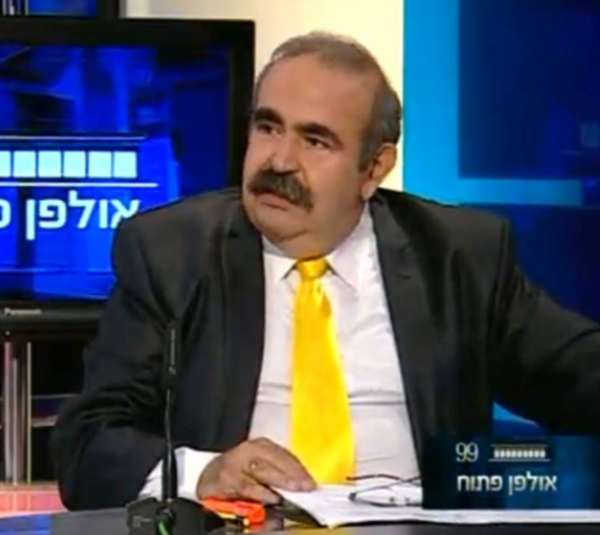
Recently, over 300 Turkish citizens were killed after a mine exploded and caught on fire. In the wake of this disaster, there have been massive protests in Turkey calling upon Turkish Prime Minister Recep Tayyip Erdogan to resign. They view him to be personally responsible for the disaster. As a result, Erdogan’s government has begun to clamp down more on dissent.
A Der Spiegel journalist received death threats and was forced to flee Turkey due to his critical coverage of the Soma disaster. A 15-year-old girl was punched in the face for referring to Erdogan as “her father’s murderer.” Another man was called “sperm of Israel” and hit personally by the Turkish Prime Minister. One of Erdogan’s advisers was caught on video kicking a demonstrator in the stomach. The police chased after protesters in the narrow streets of Dani, Istanbul, and Okmey. A man not connected to the protests was even shot and killed, the BBC reported.
Evidently, Turkish citizens have good reason to be outraged. “According to the opposition press, the AKP was a partner of that company and gave them permission to work,” Rafael Sadi, a journalist for the opposition Turkish media outlet Oda TV, reported. “They made not such a clean inspection of the mine. They had to make safety inspections. According to the opposition, the AKP is part of this business.”
Sadi stresses that Turkish safety rules regarding mines are in compliance with international norms. The problem is enforcement, as far as he sees it: “The issue is people checking that the rules are followed. I believe the inspections will be in effect as necessary for a while, until it becomes loose again. For the next few months or years, they will follow the rules. After that, it will be loose again and we can expect another disaster. It was also like this in the past, not only with the AKP. It is stupid not to invest in the safety, because in those kinds of disasters, the owner of the mine is losing a lot of money if something happens.”
However, the Soma disaster highlights a larger issue than the lack of miner safety within Turkey. The Turkish governments’ reaction to the Soma protesters also demonstrates that Erdogan is trying to undermine Turkish democracy. “Since the AKP has a lot of money and we don’t know where it comes from, the power is greater than we imagine,” Sadi explained. “Erdogan calls to newspaper managers and asks them to remove writers. The companies don’t have a choice. Hurriyet is the biggest and they got a penalty of $6 billion, to show them that if Erdogan wants, he can eat you. They had to do whatever Erdogan wants. There is a lot of information about the subject. He calls TV managers to stop programs. This is the kind of freedom.”
“Mr. Erdogan just two weeks ago made more trouble against the lawyers bar head. There was the 146 years celebration of the Turkish Justice system. The leader of the bar was celebrating 146 years and he started to speak in front of everyone,” Sadi explained. “He started to explain that in Van, where the earthquake struck 3 years ago, there are still 44 families without houses and he asked the Turkish government to help them. Erdogan jumped and told him to stop talking, because he is dealing with politics. Erdogan ordered everyone to leave.”
Sadi believes that this shows a lot about Erdogan’s character: “This shows that Erdogan day by day is deeply going down. He is feeling himself like a sultan. In a democratic country, everyone has the right to speak and bring his ideas in front of everyone, including Prime Minister and President. You can say whatever you like to Netanyahu or Peres. They will give you the right answer. Erdogan cannot keep himself. He thinks nobody can bring his ideas in front of him. He doesn’t have the patience to listen to what others need. He feels that everything will damage him. He reacts like this because he is scared. It is dangerous for him. This is the person, what can we do?”
Unfortunately, Sadi does not see the AKP being toppled soon and he believes a lot of it has to do with the weakness of the Turkish opposition: “The elections are in August. I am sure that every action will have a reaction. The problem is not with the AKP. It is with the opposition. The CHP does not have any leader yet to put up in the elections. There are a lot of names, but there is an internal fight within CHP.” To highlight the problem with the CHP, Sadi related the following joke: “The son of Ismet Inonu went to a restaurant with 20 people from CHP and the waiter asked him what they want to eat. He said to bring only forks and knives and we will eat each other.” According to Sadi, “This is one of the reasons the AKP is getting the results. There is no competition. The CHP is too busy fighting each other to go up against the AKP.”
Another Turkish dissident, who presently lives in Turkey and wants to be anonymous, agrees with Sadi’s assessment: “The sad part is that, in Soma, Erdogan’s party won nearly 45 percent of the vote, just like in the rest of Turkey, on March 30th, more or less on the same day as his party refused a parliamentary investigation into the safety of the mine that killed hundreds of miners a couple of days ago. I would bet all my money on the probability that Erdogan would again easily win in Soma if there were elections a day after the town buries its dead miners. Its just mind boggling. But, at least, there is 57 percent outside the 43 percent and they are not the counterfeit owners of this country.”